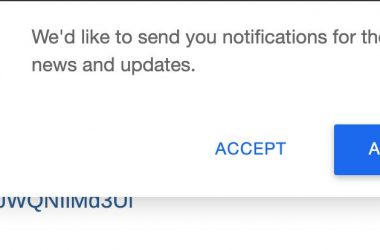The March 2024 Core Update focuses on improving Google’s core ranking systems – how they identify how helpful your content is.
While they have been reducing the type of spammy content this rollout aims to target since 2022, this algorithm change will take advantage of the groundwork they have laid in those two years. With this core update, Google intends to reduce low-quality, unhelpful content in search results by 40 per cent.
To do this, Google will begin de-indexing any web pages they deem low-quality (i.e. harbour unhelpful content, have poor user experience, or created for the purposes of outplaying the ranking algorithm to place higher in the SERPs), and help send more traffic to its more helpful counterparts.
In this article, SEO Sydney will break down the update as well as provide some example scenarios to fully capture its impact.
What’s New? SEO Sydney Explores…
Launched on March 5, Google rolled out the following spam policies to discourage emerging abusive practices that encourage content creators to produce low-quality content:
- Expired Domain Abuse
- Scaled Content Abuse
- Site Reputation Abuse
This change was done in order to encourage creators to thoroughly review all of Google’s spam policies and the abovementioned content.
Conversely, site owners who don’t take these spam policies seriously will inevitably rank lower in search results, or worse – have their site omitted from the search results.
For websites that were flagged by a manual action, site owners will receive a notification in their manual actions report and can appeal to Google to have it reconsidered.
Scaled Content Abuse
This policy focuses on scaling back the tide of low-quality, and AI-generated content that fails to ‘deliver high-quality content, however it’s produced’, according to Chris Nelson from the Google Search Quality team.
If your website contains many pages with the sole purpose of manipulating search rankings (i.e. tailoring your content for search engines by spamming an exact match phrase) while providing little to no value to your users, you’re most likely practising scaled content abuse.
This policy also applies whether the content is human-written, AI-generated, or a mix of both. As long as the content evaluated as unoriginal and low-quality, it qualifies as spam.
Site Reputation Abuse
Formerly known as ‘Parasite SEO’, this policy addresses the issue wherein high-authority websites host generic and (often low-quality), third-party pages to take advantage of the reputation of the trusted site to rank higher in the search results.
This includes any hosted third-party content such as sponsored, partner, and/or advertising pages that are produced without the involvement of the high-authority website, and harbour irrelevant content that provides little to no value to the reader.
For example, if your sports website begins hosting a page about the ‘best ways to improve your website’s SEO’ with the intention of manipulating search rankings, you’ll most likely characterise as spam.
Fortunately, not all hosted third-party content will qualify here. Google will only mark hosted content made solely to manipulate search engine results. If you regularly host content for your regular readers such as forums, news publications, and press release websites, you’re good to go.
To see if you’re in the clear, we recommend thoroughly reviewing Google’s spam policies if you haven’t already. It never hurts to check, and on the off-chance, you might be unknowingly violating one.
Expired Domain Abuse
Expired domain abuse describes instances in which individuals purchase an expired domain name with the intention of using its past reputation, and then repurposing it by filling it with low-quality content.
The reason why Google is cracking down on such sites is that it can confuse visitors into thinking that the newly-created content is part of the older site to make it look credible, especially if it significantly strays from the previous website’s content.
For example, someone purchased a site previously used by a non-profit medical organisation. After purchase, they repurposed the website to host commercial medical products in hopes of ranking higher in the search rankings.
Final Thoughts – SEO Sydney
For those who aren’t ranking too well or know that they might be violating anything, we recommend reading Google’s content help page and spam policies. Google is giving site owners two months (or until May 5, 2024) to comply.
However, not everything’s set in stone since Google will be continuously pushing out updates to its systems throughout the next three to four weeks. You will most likely face a lot of fluctuations in web traffic during this timeframe.
If you or your SEO agency regularly makes helpful content for humans, written by humans, has great user experience, and complies with Google’s spam policies to a T, you shouldn’t worry too much.
Convinced now on your need to step up your white hat tactics? SEO Sydney fundamentally works on bringing compliant, best practices with an innovative edge – contact us today to get started, and bring your site into the new fold of high-value content!


